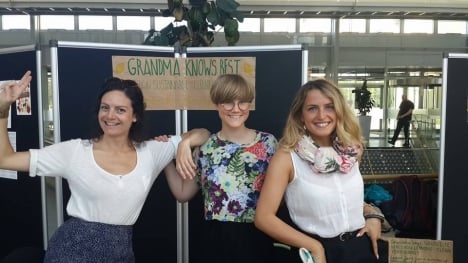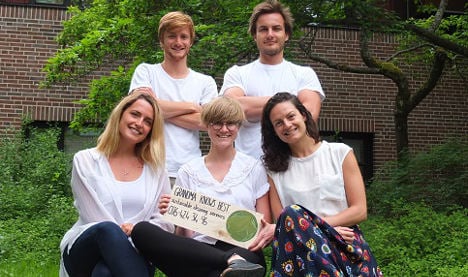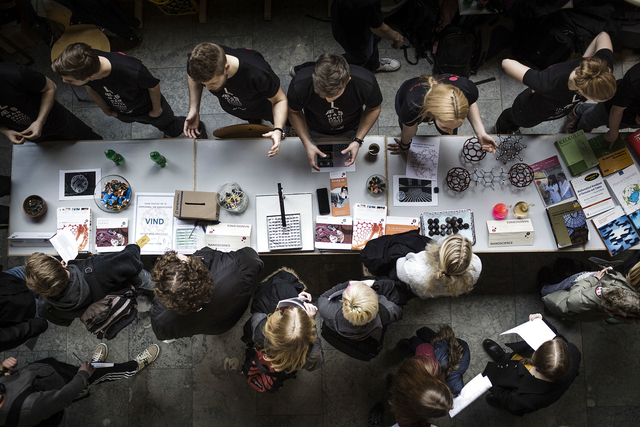Coming from different parts of Europe, students Alexis Bouges (France), Jan Cihlar (Czech Republic), Liridona Sopjani (Kosovo), and Martha Mancheva (Bulgaria) met when studying the same master’s program in Sustainable Development at Uppsala University.
"Seeing how socially and economically advanced Sweden is, I believed it would be the best place to study and learn from people and culture here," co-founder Liridiona Sopjani from Kosovo tells The Local. "And then later I can contribute to my country."
But like many students, she was unable to find any work without speaking Swedish. So, she and her friends decided to create their own jobs – by building a company from scratch.
“We felt the need to step up, use our academic background in sustainability, and change something,” she tells The Local.
Since May of 2014, the student entrepreneurs have been running a sustainable and eco-friendly start-up in Uppsala: the Grandma Knows Best cleaning company.
Photo: Grandma Knows Best
Sweden is renowned for being at the forefront of sustainable development and environmentally friendly products. For most Swedes, being environmentally conscious is a way of life, and looking for alternatives to meet their demands has become second nature to many.
Eco-friendly and green cleaning is not an entirely new invention – but as an increasing number of Swedes hire home cleaners, the students’ timing couldn’t have been better.
They say that what makes Grandma Knows Best unique is their 'refuse, reduce, reuse, and recycle' policy in every aspect of their work. From their products to their mode of transportation, the aim is to provide a cleaning service that is environmentally sustainable – leaving behind a squeaky clean home and happy, environmentally aware clients.
In order to avoid using solutions that are harmful to the environment, Grandma Knows Best develops and manufactures its own cleaning products.
It is quite a lot of work for the students, who are all still studying full time. They clean homes in the morning, then rush off (on bikes rather than busses of course) to lessons, and manage the business after class.
Alexis Bouges takes care of the company's finances, Jan Cihlar handles internal management, Liridona Sopjani works with communication and brand management, and Martha Mancheva leads marketing. Swedish student Josefin Brodell joined the team shortly after its foundation, taking care of customer service. Today the five-student team is on the way to small-business stardom.
"Everyone is definitely interested in knowing more about what products we use," the students explain. "Especially how we can clean so well with simple raw materials such as baking soda and vinegar!"

Photo: Grandma Knows Best
Czech student Jan Cihlar, responsible for product development and testing nature-based cleaners, says he was surprised to find that the range of natural products available to cleaners is very limited in Sweden.
“The amount of chemicals and toxic agents found in our homes is alarming. We saw that there was a need to find more natural alternatives to maintain a clean living environment.”
The team behind Grandma Knows Best has managed to stay away from perfumes and preservatives altogether.
Still in the process of perfecting their brand communication to reach a wider audience, the start-up is gaining momentum and the students say they are hoping to inspire other young entrepreneurs.
In the words of Martha Mancheva from Bulgaria: “Don’t be afraid to put yourself and your business idea out there. Use your academic knowledge out in the real world.”
Mimmi Nilsson







 Please whitelist us to continue reading.
Please whitelist us to continue reading.
Member comments